The True Story Behind The Count of Monte Cristo
Alexandre Dumas' Story of Rags to Riches, and Revenge
Alexandre Dumas is France’s all time greatest novelist, and has an even greater origin story.
This man grew up fatherless and impoverished before rising to literary stardom, and more stunningly, and a personal vendetta against Napoleon Bonaparte himself.
It was this simple desire for revenge that would help fuel the genius of his novels like The Three Musketeers, and The Count of Monte Cristo, which forever changed the course of Western literature.
Today we’ll take a deep dive into Dumas’ life story, to see how a simple boy in poverty rose from rags to riches to become one of history’s all time great literary figures.
Reminder:
I offer one on one coaching for men, focusing on faith, fitness, and the Great Books. More info here.
Additionally, if you’d like to support my mission of restoring Truth, Beauty, and Goodness to the West, subscribe below!
A Father’s Feud
To understand Alexandre Dumas, we must first consider his father — Thomas Alexandre Dumas (Dumas Sr).
Dumas Sr was a revered general in the French army, who fought alongside Napoleon Bonaparte on the Egyptian campaign. Unfortunately, the two butted heads and blamed each other for the campaign’s failure. Later on, when Dumas Sr became a prisoner of war, Napoleon was alleged to have delayed his release. As a result, Dumas Sr languished in prison, grew ill, and died of stomach cancer when Alexander Dumas Jr was only four years old.
To make matters worse, Dumas Sr was denied his military pension, meaning Dumas Jr and his mother were doomed to poverty without their father/husband.
Indeed, Dumas Jr would be raised in the harshest of upbringings…
Poverty, Pain, and Big Dreams
Dumas’ early life was bleak. Not only was he impoverished, but he was raised in a quaint village with no access to education or social mobility. Worse yet, he was haunted by his father’s death.
At one point, the four year old was caught walking around his house at night with a loaded pistol, muttering that he wanted to “kill God, who killed Daddy…”
He languished with inconsolable grief, and later developed a hatred for Napoleon, after learning of his father’s miserable end. As painful as this upbringing must have been, this same trauma would soon call Dumas to his destiny…
Growing up, Dumas idolized his father. He marveled over his countless exploits on the battlefield. Dumas Sr, who was born a Haitian slave, found freedom and acclaim as a French General. He even earned the nickname, “Black Devil,” from his enemies, because of the fear he struck in their hearts.
Dumas Sr had countless tales of glory, and these tales inspired Dumas to greater ambitions than idleness in a quaint French village.
The young man settled on literature. Dumas desired to tell stories that would not just win him fame and wealth, but ultimately immortalize his father’s legacy as one of France’s greatest generals of all time. As a bonus, it would be revenge against Napoleon for (allegedly) leaving his father to die.
As such, Dumas left his hometown for the big city of Paris, eager to make his mark on the world.
Unfortunately, it would be anything but an easy beginning for the young upstart.
The Big City
The Parisian city rejected Dumas. His father’s friends wanted nothing to do with him, and though Dumas found work as an entry level clerk, he was harassed for his mixed-race complexion.
He persevered nonetheless, and began writing a novel in his free time. After months of perseverance, he finally completed and published his debut novel — Nouvelles Contemporaines — but it flopped, selling a mere four copies.
This failure devastated Dumas, who abandoned his writing. He sought escapism with Catherine Labay, a beautiful French woman. He moved in with her and fathered a son, and seemed to find solace in domestic life as he continued to labor as a clerk.
Nonetheless, he remained impoverished, and would soon rediscover the restlessness of his ambitious spirit…
The Big Break
Still haunted by his father’s legacy, Dumas once again returned to his literary aspirations.
Despite raising a family and working a full time job, Dumas began working rigorously on a play called Christine. After months of toiling he completed his work, and better yet was surprised to find Christine accepted into production — his play would be performed and he became an established playwright.
Ultimately, Christine wasn’t a commercial success, but it gave Dumas the confidence to persevere in his literary ambitions. He worked as vigorous as ever, and months later completed a second play called Henry III. This play became a smash-hit. Overnight, Dumas conquered poverty and became a wealthy and acclaimed playwright.
In addition, he became high in demand amongst the Parisian aristocracy, enjoying influence amongst the elites of Europe.
Yet even still, this is just the beginning of his career and his story.
Rise to Stardom
Dumas was gratified by his newfound success as a playwright, but in 19th century France, the real glory didn’t come from plays, rather novels.
For any author looking for wealth and glory, the goal was to write serialized novels whose chapters could be published weekly in the newspapers, leaving audiences fiending to buy, read, and devour your installments. For Dumas, this business model would be a gold mine.
Dumas teamed up with a writing partner — Auguste Maquet. Maquet, who was a knowledgeable historian, pitched story ideas and drafted the outlines. Then Dumas, with his background as a playwright, took these outlines and polished them into dramatic adventure stories… Their partnership would take the literary world by storm.
The duo went on to publish 18 novels together, and the French public couldn’t get enough of them. They devoured his weekly installments, and the writing partners went on to become millionaires, while Dumas himself acquiring worldwide fame
But what made Dumas such a master of the adventure genre?
It all points back to his father’s legacy…
A Legacy That Lasts
As discussed earlier, Dumas began his career as a means of honoring his father’s legacy and avenging the injustices done to him by Napoleon.
Clearly Dumas had a strong why, and appreciation for adventure through learning of his father’s tales of glory, but his father also directly inspired Dumas’ masterpiece — The Count of Monte Cristo.
The plot follows a young man, wrongfully imprisoned, who escapes the clutches of death to rise to power and seek revenge against his enemies. Dumas wrote this with his father in mind — imprisoned himself and betrayed by Napoleon — and surely felt a catharsis in crafting this narrative.
But the novel itself is more than a therapeutic story, rather it gives you the blueprint of living a meaningful life — that life’s injustice and sufferings become redemptive if you dare to strive and seek your life’s adventure, as both Dumas Jr and his father’s lives are testament to…
Conclusion
200 years later, and Dumas’ works like The Count are still read and celebrated to this day.
To read Alexandre Dumas is to not just discover thrilling adventure stories, but to learn the life philosophy of one of history’s all time greatest writers.
Indeed — in a world filled with suffering and injustice — adventures it the key to a meaningful life. The Count of Monte Cristo asserts this itself:
“Life is a storm, my young friend. You will bask in the sunlight one moment, be shattered on the rocks the next. What makes you a man is what you do when that storm comes. You must look into that storm and shout:
Do your worst, for I will do mine!
Then the fates will know you as we know you”
To seek your life’s adventure in spite of its storms is to do more than lead a meaningful life. It’s the framework to leaving behind a legacy that lasts, one that’s worth reading about, as was the case for Dumas Jr and Dumas Sr…
Thank you for reading!
If you’d like to go deeper:
I offer one-on-one coaching for men on faith, fitness, and the Great Books. More info here.
Subscribe for free to receive weekly emails exploring the Great Books and their lessons on Truth, Beauty, and Goodness.
Paid members get an additional members-only email each week!


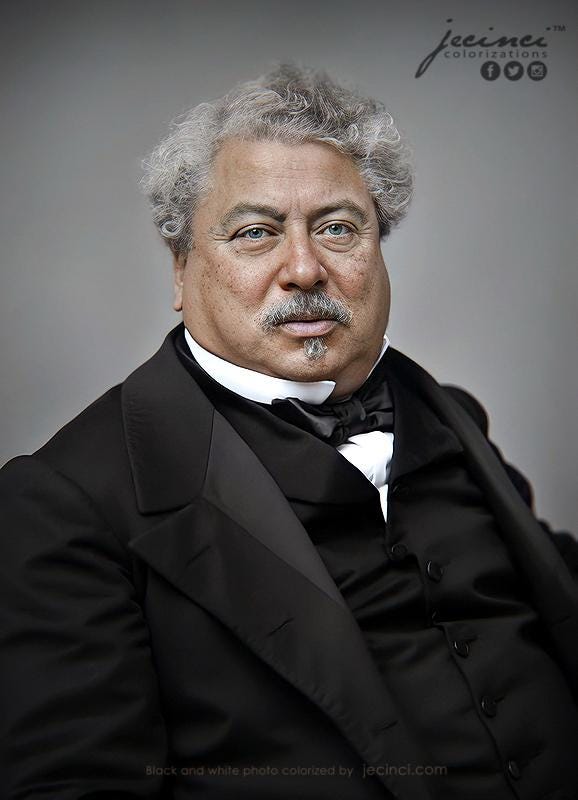
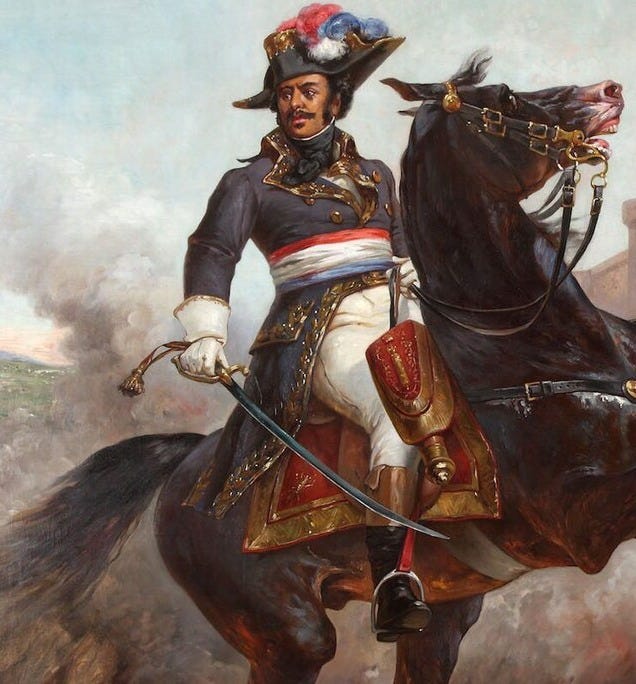

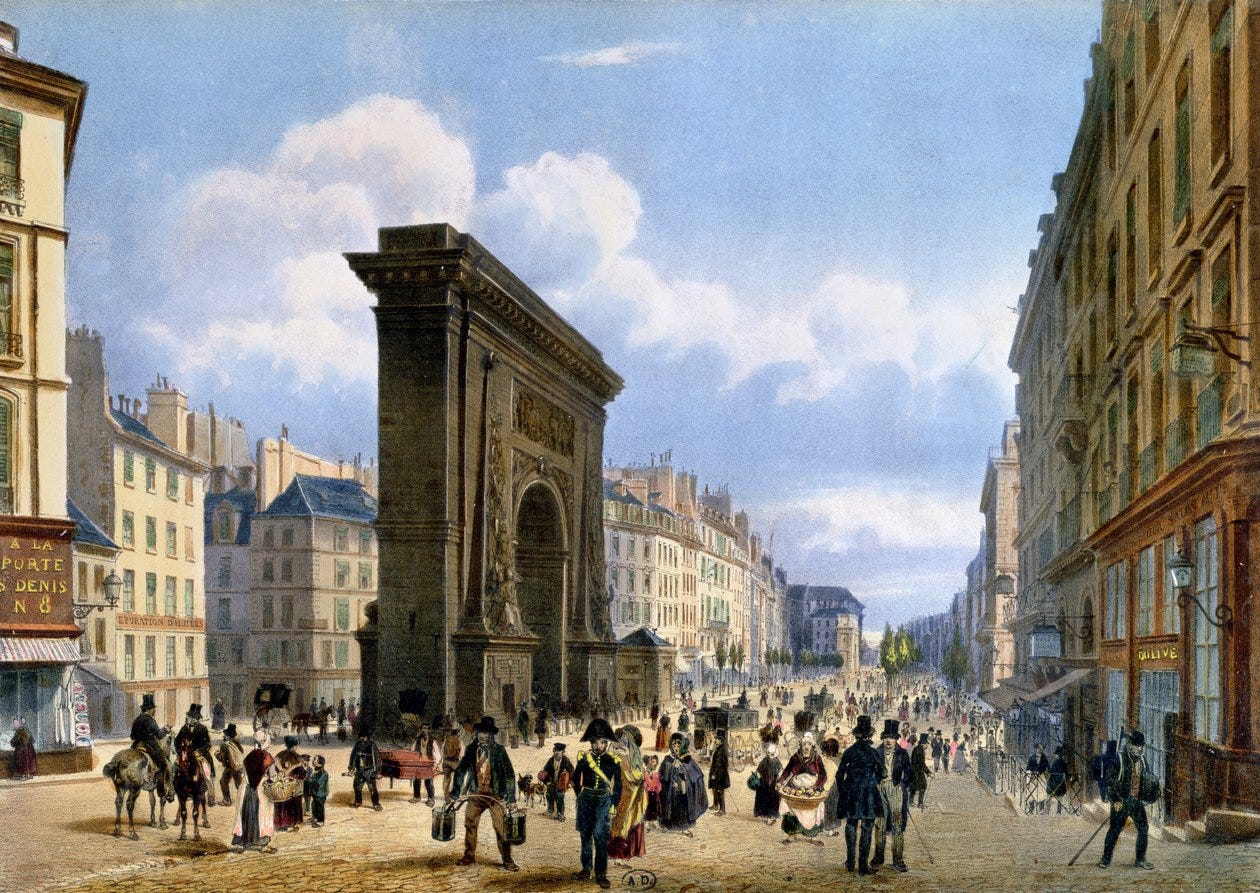
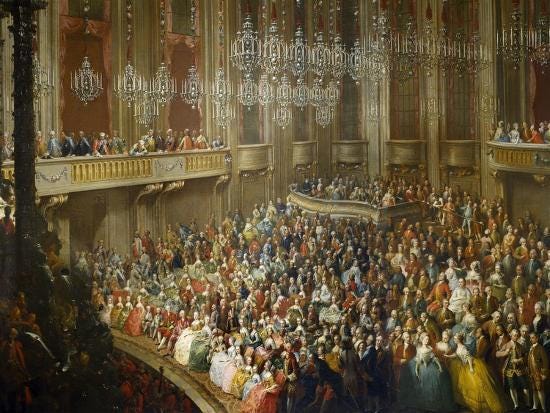

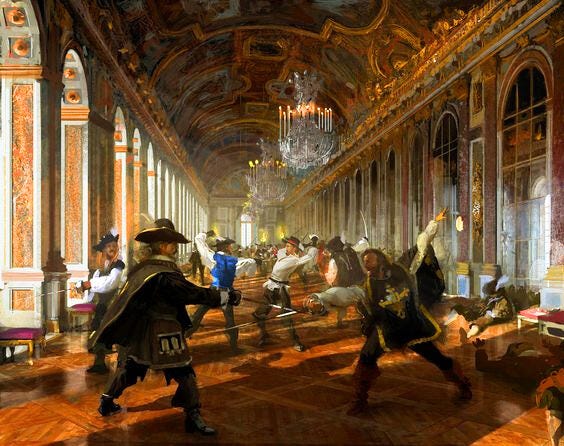
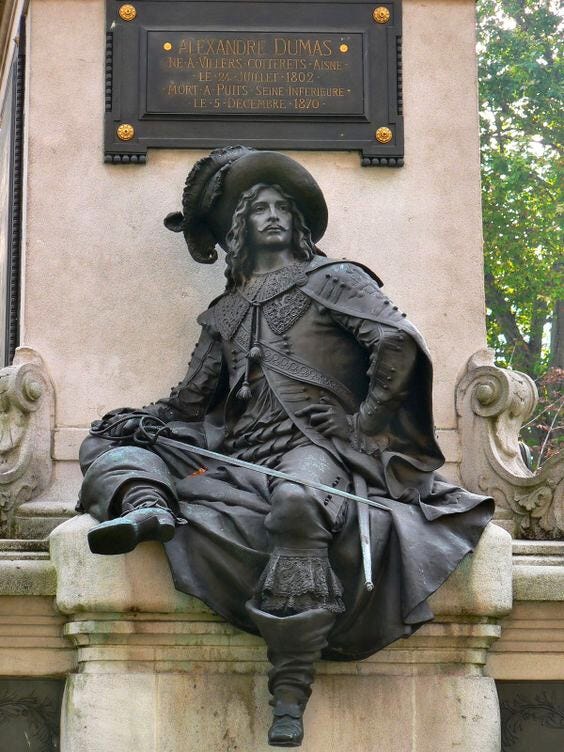
A great tale, thanks! One of the first novels I read as a young boy was a musty old leatherbound edition of “The Count….”
Of the French authors, Victor Hugo has always been my go-to. The Count of Monte Cristo has been on my list for a while now; I’ll definitely been moving it up. Great article! Had no idea Dumas had such a moving story, himself.